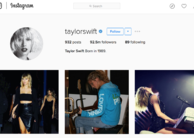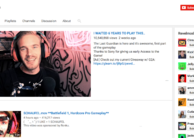Cablegate and Watergate: More Namesake than Legacy
By
2012, Vol. 4 No. 03 | pg. 1/1
IN THIS ARTICLE
KEYWORDS
Just a few months after making international news in early 2010 for releasing confidential reports on the Afghanistan and Iraq wars, the international whistleblower site Wikileaks began publicly releasing information from a series of over 250,000 classified diplomatic cables it had illegally obtained from a U.S. military database. This release, which quickly came to be known as Cablegate, was condemned by the U.S. Department of State as “reckless and dangerous” for its potential to negatively impact United States interests abroad (including the safety of diplomats’ confidential sources)1. A small snapshot of the cables includes evidence of U.S. forces executing Iraqi civilians in 20062, threats by the United Kingdom to pull out of the Open Skies aviation agreement if a partnership between British Airways and American Airlines was not approved by the Department of Justice3, pressure by the United States for the European Union to approve the acquisition of Sun Microsystems by Oracle (whose employees had given hundreds of thousands of dollars to the Obama campaign)4, and hundreds of thousands of other matters ranging from innocuous or merely embarrassing to potentially illegal. At first glance, Wikileaks’ Cablegate looks to have much in common with the Watergate scandal from which its name is derived. Each case involves investigative reporters challenging the United States government with the help of informants who were initially anonymous. However, accepting such a comparison on face value would prematurely disregard some ambiguity about the roles played by the parties in the Wikileaks case. Some would certainly argue that Wikileaks is like President Nixon’s campaign, illegally obtaining private files in order to discredit political opponents. Others would counter that Wikileaks is more like a modern-day Deep Throat, cooperating with reporters to expose crimes committed by the government and further the interests of democracy. It is likely that Wikileaks and the newspapers would use the latter explanation to describe their motivations, which makes it a more logical framework to analyze how similar the two cases really are based on three key factors: the newspapers, the sources, and the outcomes of the events. Through evaluation of the similarities and differences between these factors, it becomes clear that although their names are similar, Watergate and Cablegate are in fact more different than alike. NewspapersWikileaks had been operating and releasing data on the Internet for over four years before becoming involved with traditional media. In June 2010, investigative journalist Nick Davies of Britain’s The Guardian arranged a meeting with Wikileaks founder Julian Assange based on reports of “a massive trove of military and diplomatic documents” having been obtained by Wikileaks. Davies was able to convince Assange that these documents would have a much greater impact if Wikileaks agreed to partner with newspapers rather than try to break the story itself. As a result, a “unique collaboration” was created between Wikileaks, The Guardian, The New York Times, and German newsmagazine Der Spiegel to share exclusive information and break stories based on Wikileaks’ data.5This collaborative environment was highly unusual, and the complete opposite of the isolation experienced by the Washington Post’s reporters during the Watergate investigation. It was also a very strategically constructed arrangement: while the Guardian structured the deal and would host the investigative efforts, the U.K.’s restrictive media laws made it vulnerable to U.S. legal action; additionally, having only foreign papers run the story raised the risk that exposed Wikileaks informant Bradley Manning could be successfully prosecuted for violating the Espionage Act of 1917. The Times was brought on board to address these issues, chosen because of its history with the release of the Pentagon papers, and as Davies argued, “there was no way the Obama administration would attack the most powerful Democrat-leaning newspaper in the US.” 6 While the Washington Post faced substantial opposition and pressure (described by Nixon as “damnable problems”) from the White House to stop its Watergate investigation7, its lone wolf status did not allow for the same kind of strategic action taken by the Wikileaks partners. Outside of the one incident where Bob Woodward and Carl Bernstein illegally attempted to get information from a grand juror, they also did not have to be concerned about direct legal action against the paper or its staff; as a result, the Post had more freedom than the Guardian to be quite forward in its pressure on the White House. The careful planning and construction of the international media alliance supporting Wikileaks allowed the papers to protect themselves and their allies while simultaneously creating a much broader audience for the stories they were exposing. SourcesThe sources used by the Guardian and its partners are very different from those relied upon by the Post in the 1970s. While the information provided to both papers originally came from anonymous sources, Wikileaks handled the actual procurement of anonymous data before passing it to its media partners, and was named as the source of the information when it was ultimately published. Woodward and Bernstein rarely had the luxury of sources who were both public and willfully supporting their investigation – they usually had neither. Sources were so reluctant that Bernstein reported feeling “like a door-to-door magazine salesman” because of the number of doors slammed in his face.8 The nature of the information provided by the sources in each case was also very different. Woodward and Bernstein relied heavily on secondary sources who could confirm or deny conclusions drawn by the reporters from documents or other materials they were able to obtain. The Wikileaks journalists, on the other hand, had an unimaginable magnitude of primary source documents to examine: David Leigh, the Guardian’s investigations editor, wrote that the over 250,000 cables “would have made up a library containing more than 2,000 sizeable books” if printed.9 Although the Wikileaks source material represented a much larger technical feat, both types of sources presented their own challenges to the reporters involved. One area where the sources in both cases were quite similar, however, is the “security culture” present between the journalists and their sources. The sources in Watergate were extremely concerned about being identified or being seen with reporters because of fear of losing their jobs or being placed in physical danger, with the infamous Deep Throat requiring a system of secret signs and meeting places that would have been at home in a Soviet spy novel.10 Julian Assange and his associates at Wikileaks had similar concerns (they were, after all, exposing state secrets belonging to the most powerful country in the world), and took substantial precautions when interacting with the team of journalists. While Wikileaks’ methods were significantly more high-tech – relying on encrypted email exchanges, false digital tracks, and hand-delivered flash drives11 rather than newspapers and flowerpots – they represented the same ideals of concern and hypervigilance held by the Watergate informants.12 OutcomesVirtually everyone knows that the Watergate investigation ultimately resulted in President Nixon taking the unprecedented step of resigning from office before Congress had a chance to impeach him. According to communications professor Rodger Streitmatter, the case also had the secondary effect of winning the Post a Pulitzer Prize, casting Woodward and Bernstein as “All-American heroes,” and generally reinforcing the idea of newspapers and the media as a cornerstone of American democracy.13 Attempting to compare these outcomes with those of Cablegate is difficult because the story of Wikileaks is very much a work in progress. There have already been major effects, however, some of which parallel the outcomes from Watergate. In May 2011, Amnesty International credited Wikileaks and its media partners as “a catalyst” for the Arab Spring and specifically the ouster of the former president of Tunisia.14 Julian Assange was awarded the Martha Gellhorn journalism prize in the U.K. (awarded for work penetrating “official drivel”) in June 2011,15 and on November 27, Wikileaks received the Walkley Award for Most Outstanding Contribution to Journalism – the Australian version of the Pulitzer. According to the Electronic Frontier Foundation, the Wikileaks cables “have shed light on almost every major foreign policy story of 2011,” and an analysis by the Atlantic Wire found that nearly half of the Times’ issues in the first four months of the year referred to documents from Wikileaks.16 While Wikileaks and Watergate both sparked substantial political change and resulted in major accolades for the individuals involved, the most interesting and concerning aspect of the long-term effects on journalism are still to be determined. Bradley Manning, the original informant, has been in federal prison for 17 months on charges of “aiding the enemy,” a crime punishable by death; there have also been torture allegations surrounding his confinement.17 Wikileaks, and their partner newspapers. The Department of Justice continues to investigate Wikileaks and Assange, reportedly for conspiracy to commit espionage (which a former Times general counsel argues might as well be called “conspiracy to commit journalism.”)18 Ultimately, the most important comparison between the two cases is going to rest on these outcomes, and whether journalism emerges as a defender of democracy or a villain to be prosecuted. ReferencesBernstein, Carl, and Bob Woodward. All the President's Men. New York: Touchstone, 1974. Deans, Jason. "Julian Assange Wins Martha Gellhorn Journalism Prize." The Guardian, June 2 2011, http://www.guardian.co.uk/media/2011/jun/02/julian-assange-martha-gelhorn- prize. Kanaracus, Chris. "Wikileaks Cable Offers New Insights into Oracle-Sun Deal." IDG News Service, August 30 2011, http://www.pcworld.com/businesscenter/article/239132/wikileaks_cable_offers_new_insights_into_oraclesun_deal.html. Leigh, David, and Luke Harding. Wikileaks: Inside Julian Assange's War on Secrecy. New York: Public Affairs, 2011. Members of the European Parliament. "Bradley Manning: MEPs' Open Letter to the US Government." The Guardian, 29 November 2011, http://www.guardian.co.uk/world/2011/nov/29/bradley-manning-mep-open-letter. Rusbridger, Alan. "Wikileaks: The Guardian's Role in the Biggest Leak in the History of the World." The Guardian, 28 January 2011, http://www.guardian.co.uk/media/2011/jan/28/wikileaks-julian-assange-alan-rusbridger. Schofield, Matthew. "Wikileaks Cable: Iraqi Kids in U.S. Raid Shot in Head, U.N. Says." McClatchy Newspapers, August 31 2011, http://www.sltrib.com/sltrib/world/52495314-68/alston-iraqi-cable-incident.html.csp. Shane, Scott, and Andrew W. Lehren. "Leaked Cables Offer Raw Look at U.S. Diplomacy." The New York Times, November 28 2010, http://www.nytimes.com/2010/11/29/world/29cables.html. Stöcker, Christian. "A Dispatch Disaster in Six Acts." Spiegel International, September 1 2011, http://www.spiegel.de/international/world/0,1518,783778,00.html. Streitmatter, Rodger. Mightier Than the Sword: How the News Media Have Shaped American History. 2nd ed. Boulder, CO: Westview Press, 2008. Timm, Trevor. "Cablegate One Year Later: How Wikileaks Has Influenced Foreign Policy, Journalism, and the First Amendment." Washington: Electronic Frontier Foundation, 2011. https://www.eff.org/deeplinks/2011/11/cablegate-one-year-later-how-wikileaks- has-influenced-foreign-policy-journalism. Walker, Peter. "Amnesty International Hails Wikileaks and Guardian as Arab Spring 'Catalysts'." The Guardian, May 12 2011, http://www.guardian.co.uk/world/2011/may/13/amnesty-international-wikileaks-arab-spring. Webb, Tim. "UK 'Threatened to Pull out of Open Skies Deal', Leaked US Cables Show." The Guardian, February 14 2011, http://www.guardian.co.uk/business/2011/feb/14/uk-open-skies-embassy-cables-wikileaks. 1.) Scott Shane and Andrew W. Lehren, "Leaked Cables Offer Raw Look at U.S. Diplomacy," The New York Times, November 28 2010. 2.) Matthew Schofield, "WikiLeaks cable: Iraqi kids in U.S. raid shot in head, U.N. says," McClatchy Newspapers, August 31 2011. 3.) Tim Webb, "UK 'threatened to pull out of Open Skies deal', leaked US cables show," The Guardian, February 14 2011. 4.) Chris Kanaracus, "Wikileaks Cable Offers New Insights Into Oracle-Sun Deal," IDG News Service, August 30 2011. 5.) Alan Rusbridger, "WikiLeaks: The Guardian's role in the biggest leak in the history of the world," The Guardian, 28 January 2011. 6.) Der Spiegel was added to the list because it was well-financed and Germany was involved in Afghanistan (the subject of the first set of documents revealed through the partnership). David Leigh and Luke Harding, Wikileaks: inside Julian Assange's war on secrecy (New York: Public Affairs, 2011). 90-100. 7.) Rodger Streitmatter, Mightier than the Sword: How the News Media have Shaped American History, 2nd ed. (Boulder, CO: Westview Press, 2008). 220. 8.) Ibid., 215. 9.) Leigh and Harding, Wikileaks: inside Julian Assange's war on secrecy: 140. 10.) Carl Bernstein and Bob Woodward, All the President's Men (New York: Touchstone, 1974). 71-72. 11.) Leigh and Harding, Wikileaks: inside Julian Assange's war on secrecy: 98-102. 12.) It is important to note that this security ultimately did not prevent the release of the diplomatic cables in their complete, unredacted form resulting from what Der Spiegel called “a series of blunders by WikiLeaks [sic] and its supporters.” Christian Stöcker, "A Dispatch Disaster in Six Acts," Spiegel International, September 1 2011. 13.) Streitmatter, Mightier than the Sword: How the News Media have Shaped American History: 223-24. 14.) Peter Walker, "Amnesty International hails WikiLeaks and Guardian as Arab spring 'catalysts'," The Guardian, May 12 2011. 15.) Jason Deans, "Julian Assange wins Martha Gellhorn journalism prize," The Guardian, June 2 2011. 16.) Trevor Timm, "Cablegate One Year Later: How WikiLeaks Has Influenced Foreign Policy, Journalism, and the First Amendment," (Washington: Electronic Frontier Foundation, 2011). 17.) Members of the European Parliament, "Bradley Manning: MEPs' open letter to the US government," The Guardian, 29 November 2011. 18.) Timm, "Cablegate One Year Later: How WikiLeaks Has Influenced Foreign Policy, Journalism, and the First Amendment." Suggested Reading from Inquiries Journal
Inquiries Journal provides undergraduate and graduate students around the world a platform for the wide dissemination of academic work over a range of core disciplines. Representing the work of students from hundreds of institutions around the globe, Inquiries Journal's large database of academic articles is completely free. Learn more | Blog | Submit Latest in Business & Communications |














